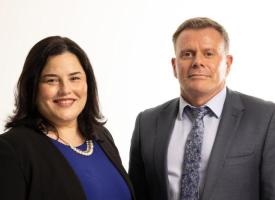Transcript - Dr Gannon - ABC Radio - Budget and doctor workforce changes
Transcript: AMA President, Dr Michael Gannon, ABC Radio Great Southern, with Christine Layton, Wednesday 9 May 2018
Subject: Budget savings measures and the doctor workforce changes
CHRISTINE LAYTON: We're joined by Dr Michael Gannon, President of the Australian Medical Association. He is live from Canberra. Good morning, Dr Gannon.
MICHAEL GANNON: Good morning where you are.
CHRISTINE LAYTON: [Laughs] Thank you for joining us. Will the 200 visa cuts be replaced with Australian trained doctors; is that the gist of it?
MICHAEL GANNON: Well, that's the ultimate aspiration. I mean, can I start by just making it very clear that we really appreciate the contribution made by international medical graduates in the past, and in the present, and in the future to rural Australia. But the ultimate aspiration has to be self-sufficiency in medical graduates, and we applaud the Government in at least starting to introduce some evidence-based measures, as my colleague from the RDA has said, that are likely to increase the number of doctors who settle in rural areas, in the regions. If you take people who went to high school in the regions, if you train them in the country, they are far more likely to make their careers there. We think they have got it right in this workforce package.
CHRISTINE LAYTON: Why is this the single biggest savings measure? I mean, how much does it cost to bring doctors in from overseas?
MICHAEL GANNON: We're still trying to work out that line item because in the health lockup these cuts were not put before us. So, basically what we've got is we've got a Health Budget which points to $4.8 billion extra investment, and we've got a saving in the Immigration Home Affairs portfolio. So, we're still trying to work that one out. Obviously the idea is that those services are provided under the Medicare system by Australian-trained doctors. The reality is that the vast majority of doctors given visas under district of workforce shortage provisions end up working in our major cities; they end up in the middle of Sydney, the middle of Melbourne, the middle of Perth. We are interested in measures that are likely to deliver doctors to the bush in a sustained manner. We simply can't have the situation where people are recruited to jobs in the country or often in the outer suburbs of our metropolitan areas, and find their way into private hospital jobs in the middle of our cities. That's not a workforce strategy.
CHRISTINE LAYTON: Federal National candidate John Hassell says that the rural doctor shortage in WA - which is above the national average - is already bad enough without these cuts, and that he thinks there will be flow-on effects. Do you agree?
MICHAEL GANNON: Well look, I did listen to your interview with him. He's correct in saying that in terms of doctor-patient ratios, Western Australia's below the national average. And he's correct in pointing to the fact that there are many small rural towns in Western Australia where it is harder for people to see a doctor. What we're interested in is evidence-based measures that are likely to fix this problem. Simply continuing to import doctors - many of whom end up moving to Perth or to other cities after a short period of time - is not a sustainable measure. The reality is that most of those visas go to doctors working in the middle of our cities. We've responded to the cries from his Federal National Party colleagues saying that we want to make these changes.
He correctly points to the most prominent announcement being about a Murray-Darling medical student network with five major centres in New South Wales and Victoria. But what was also announced in the Budget was expanding the Rural Clinical School in Western Australia to include graduates from the new Curtin University. And the RCS is a model that we've had in Western Australia for a number of years that we're entitled to be proud of training medical students for significant periods of time, University of Western Australia and Notre Dame students. We hope that in time many of them will make careers as GPs and other specialists in regional WA.
CHRISTINE LAYTON: His argument was that the Murray-Darling Medical Schools Network, as you mentioned, wouldn't bring doctors to WA. I mean, do you think that is the case and do we need to focus on the RCS?
MICHAEL GANNON: Well look, it might bring some doctors. I mean, the reality is that doctors move between the States and Territories in Australia, as they're allowed to quite freely. But the RCS is the model we've got in Western Australia, it's a strong model. We're ahead of New South Wales and Victoria in many ways with something that's been going for more than a decade. The ultimate aspiration is that we have Australian-trained doctors, English as a first language, trained in the Australian system, understanding our complex system with the private- public mix, the Medicare Benefits Schedule, the Pharmaceutical Benefits Scheme, hopefully a detailed understanding of the very specific needs of Aboriginal Western Australians. There's the moral dimension: should you really be importing doctors from developing countries? The ultimate aspiration is that for the overwhelming majority of doctors, wherever they work in Australia, to be Australian-trained. And we've seen in this Budget another couple of tiny steps towards that aspiration.
CHRISTINE LAYTON: Alright. Dr Gannon, really appreciate your time this morning. Thanks so much for coming on.
MICHAEL GANNON: It's been a pleasure.
CHRISTINE LAYTON: Michael Gannon, President of the Australian Medical Association, joining us from Canberra. Weighing in on the Budget decision to cut 200 visas for foreign trained doctors to address the over-supply in urban areas.
9 May 2018
CONTACT: John Flannery 02 6270 5477 / 0419 494 761
Maria Hawthorne 02 6270 5478 / 0427 209 753
Follow the AMA Media on Twitter: http://twitter.com/ama_media
Follow the AMA President on Twitter: http://twitter.com/amapresident
Follow Australian Medicine on Twitter: https://twitter.com/amaausmed
Like the AMA on Facebook https://www.facebook.com/AustralianMedicalAssociation



